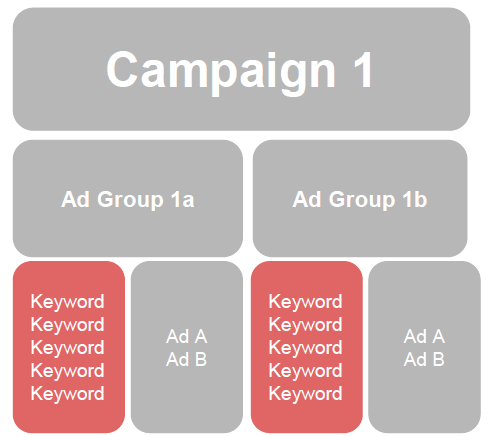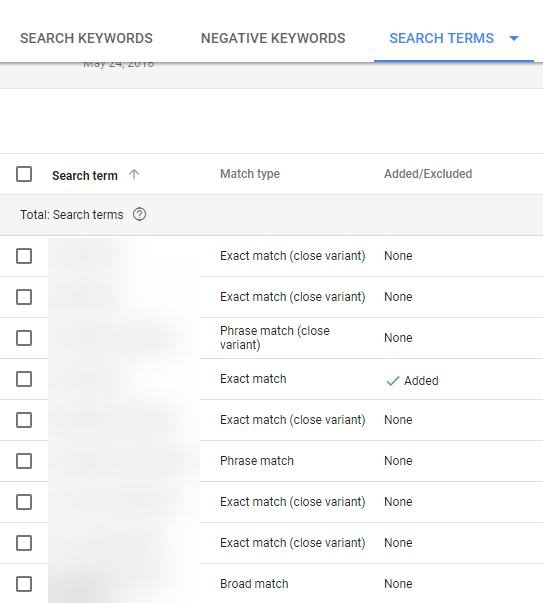As you know, few things are more crippling to a paid search account than wasted ad spend. And because you have to pay Google Ads each and every time someone clicks on your search ad, it’s often all too easy to find yourself spending money that drives zero business in return.
You’re never going to get ahead in PPC if you’re throwing money out the window on irrelevant, wasted clicks. You need a way to prevent the people who have no interest in your product or service from seeing your search ads.
That’s where negative keywords come into play.
What’s a negative keyword?
A negative keyword is a mechanism for telling Google Ads to not serve your search ad. Because that’s not the clearest explanation, let’s talk about keywords in general for a minute.
One of the fundamental parts of creating ad groups is building keyword lists. Your keywords, of course, are related to the products or services you’re advertising. That way, when a consumer with a problem you can solve turns to Google to find a solution, the search query they enter matches your keyword and triggers your search ad. Because your ad is relevant and helpful to the consumer, there’s a good chance you’ll drive a return on their click.
If only all search experiences were like this. Often, a consumer with a problem you can’t solve will turn to Google in search of a solution. Because you haven’t yet implemented negative keywords, their search query triggers your ad and one of two things happens:
- They click on your ad even though it’s irrelevant to them, thus wasting your money.
- They recognize that your ad is irrelevant to them and they don’t click, thus harming your ad’s click-through rate (CTR).
You don’t want either of those things to happen. That’s why you use negative keywords to tell Google which search terms should never trigger your ads.
Let’s say you sell waterbeds and you’re bidding on the broad match keyword mattress. Because you don’t want consumers searching for air mattresses to see your ad, you add air as a negative keyword. Now, whenever someone enters a search query that includes the word “air,” Google Ads knows to not serve your ad.
Pretty cool, right?
What are negative keyword match types?
OK—now that we’re all on the same page as far as negative keyword basics go, let’s talk about match types. There are three types of negative keywords: broad, phrase, and exact. Let’s look more closely at an example of each match type.
Read more about (close variant) here.
Let’s stick with the example of your waterbed company. Maybe you want to stay away from search queries containing “mattress” altogether. If you add air mattress as a negative broad match keyword, any query containing both “air” and “mattress” won’t trigger your ad. So, if someone searches “how to get air out of a mattress,” your ad won’t show.
Alternatively, if you add air mattress as a negative phrase match keyword, it will only prevent your ad from showing when a search query contains “air mattress” as an in-tact phrase. So, your ad could technically still show for “how to get air out of a mattress,” but it won’t for “where can i buy an air mattress.”
Finally, adding air mattress as a negative exact match keyword will only prevent your ad from showing when someone searches “air mattress” and nothing else. A negative exact match wouldn’t prevent your ad from showing for either of the two previous query examples.
As is so often the case with paid search marketing, the best negative keyword match type for you will depend on what you’re advertising, how much of a budget you’re working with, and what you’re hoping to achieve. For example, if you’re working with a relatively small budget and your primary goal is to maximize your return on ad spend (ROAS), sticking to the more restrictive negative match types (i.e., broad match and phrase match) is probably your best bet.
If you’re more of a visual learner, make sure to check out the video version of this blog post below:
And if you’d like a more complete guide to negative keywords in general, check out our Guide to Building a Negative Keywords List.





0 Comments